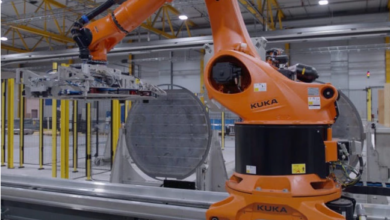EU approves €122 million for decarbonisation projects, including hydrogen
The funding is offered for the first time since the creation of the Innovation Fund.

The European Union will provide €118 million in grants to 32 small innovative projects located in 14 EU Member States, Iceland and Norway, under the innovation fund.
The funding will support projects intended to bring low-carbon technologies to the market in energy-intensive industries, hydrogen, energy storage and renewable energy.
In addition to these grants, the EU will provide project development assistance of around €4.4 million to support 15 projects located in 10 EU Member States and Norway to advance the project maturity.
Frans Timmermans, the Executive Vice-President, said, “With today’s investment, the EU is giving concrete support to cleantech projects all over Europe to scale up technological solutions that can help reach climate neutrality by 2050.”
He further added, “The increase of the Innovation Fund proposed in the Fit for 55 Package will enable the EU to support even more projects in the future, speed them up, and bring them to the market as quickly as possible.”
The successful small scale projects are starting to prepare individual grant agreements, which would be finalised in Q4 2021, allowing the Commission to adopt the corresponding grant award decision and start disbursing the grants. Projects have up to four years to reach financial closure. The European Investment Bank will contact the large-scale projects for finalising the grant agreements. Below is an overview of the hydrogen projects.
- Hyvalue, a Spanish project coordinated by Tubacex Novarg, is an upcycling production process based on an innovative circular business model for urban waste streams valorisation to generate high-quality hydrogen. It aims to supply hydrogen for the transport and energy-intensive sectors, based on an innovative production process using municipal solid waste (MSW). The production capacity of the project is forecast to be 1,600 tonnes/year of hydrogen from 12,000 tonnes of MSW.
- ZE PAK green H2, a Polish project run by Zespol Elektrowni Pątnow – Adamów – Konin, is 5 MW green hydrogen production project. The project aim is to build a pilot water electrolysis system to produce green hydrogen for the transport sector. The 710 tonnes/year capacity plant will comprise two Proton Exchange Membrane (PEM) electrolysers powered by renewable sources, i.e. an on-site solar photovoltaic plant (60%) and external suppliers (40%).
- Sun2hy is a Spanish project presented by Sun2hy, Repsol and Engas. It is the first small‐scale deployment (FSD) of a pre-commercial plant based on photoelectrocatalytic technology for hydrogen production. The project aims to design, implement and validate a pre‐commercial stage production plant comprising photoelectrochemical cells for producing hydrogen directly.
- H2 Valcamonica is an Italian project presented by A2A Spa, Snam Spa and FNM Spa for green hydrogen for the decarbonisation of Valcamonica. The project will produce and store electrolysis-based hydrogen (i.e., green hydrogen) to cover the local hydrogen demand from the mobility sector, industrial and logistics sectors. The annual production is expected to be about 830 tonnes, based on 43,870 MWh of electricity and 16,600 m3 of water.
- BHyPER Community is a Portugal based project coordinated by Hyperion Energy Investments and Sgps SA. The project will supply green hydrogen to a local industrial site backed by Photovoltaic (PV) generation and a battery system.
- Triskelion is a Spanish project presented by Forestal del Atlántico, Sa, aiming to build an innovative plant to produce green methanol from renewable hydrogen and CO2 captured from an existing cogeneration plant.
- Hydrogen Europax is a Denmark/Norway project presented by Dfds AS (DK), Hexagon Composites ASA (NO), ABB Ltd. (SE), Ballard Power Systems Inc. (DK), Lloyd’s Register Group Services, Limited (UK), Knud E. Hansen (DK), Ørsted (DK), Danish Ship Finance (DK). The project is to build a zero-emission vessel powered by a large-scale fuel cell system that will exclusively use green hydrogen from renewable sources.
